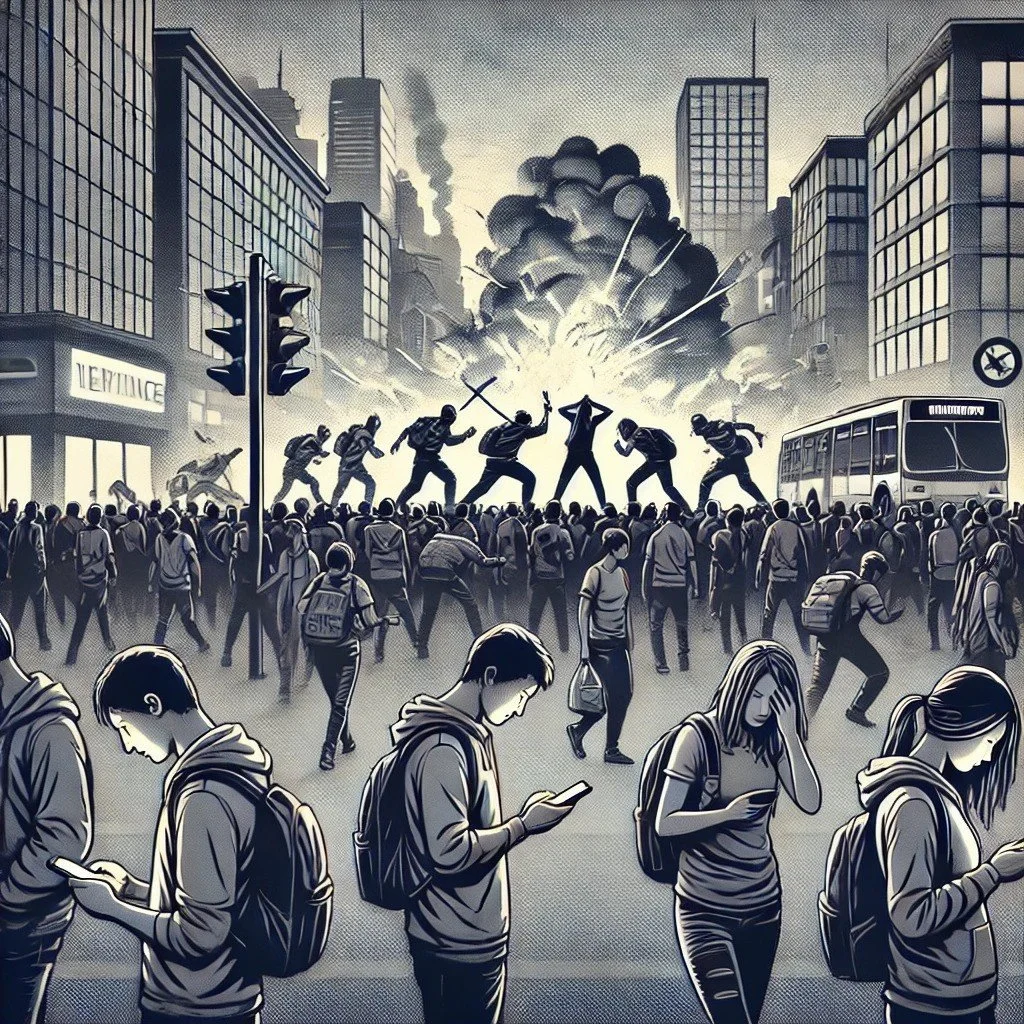A Society Desensitized to Violence
In recent weeks, we have seen signs of how greatly many people have become desensitized to violence. Just two days ago, Israel killed Ismail Haniyeh, Hamas’ political chief, while he was in Tehran to attend the inauguration of Iran’s new president. Following a rocket attack on July 25 that killed over a dozen Druze children in Majdal Shams, Israel retaliated on the 30th by killing Hezbollah’s top commander, Fuad Shukr. And even though it feels like an eternity ago, it was just within the last month (on July 13) that a would-be assassin attempted to murder Former President Donald Trump on stage.*
The last of these offers some unsettling insights into how violence strikes some as a topic for mirth—one of the most infamous examples being Tenacious D member Kyle Gass joking that his birthday wish was that a future shooter “don’t miss Trump next time.” This comment represents a thorough dehumanization of a person’s adversaries, to the extent that they think them contemptible and worthy of death.
Of course, not all lives lost (or potentially lost) should aggrieve us equally. A Jewish dictum teaches that it is beyond human prerogative to determine “whose blood is redder,” but I think we can introduce some nuance into the issue. We can, I'd argue, easily and unequivocally draw distinctions—for instance, amongst political opponents, violent terrorists, and innocent children.
While we needn’t mourn the death of terrorists, there is a distinction between needing to mourn and opting to celebrate. The same tradition that warned us about comparing blood also explains:
[When the Egyptians were killed at the Red Sea,] the angels sought to sing songs. The Holy One, Blessed Be God said [to them]: “The work of my hands is drowning in the Sea, and you should sing songs!?”
I can almost imagine God staring at God’s hands, knowing that for God’s plan to pass, the Egyptians needed to drown, but still regretting that reality. Such is the response these recent deaths should evoke in us. As we discuss current events, we must stress that no human suffering or death should be cause for jubilation, no matter how deserved (as in the case of terrorists) or how bitter our divides (as in the case of political violence).
Jews, more than anyone else, should know that too casual a relationship between a society and violence leads down dangerous roads which all eventually arrive at our doorstep. To borrow from one more talmudic idiom (since I’m on a roll), “violence is a wheel that goes around the world.” There is a similar psychological enabling process that permits a person to celebrate others’ pain, to inflict harm on others, and thus can lead to a proliferation of violence against the vulnerable.
In this month, a common nexus of such inclinations seems clearer than ever, and not just because the person who sought to kill Trump also, apparently, repeatedly posted antisemitic (and anti-immigrant) content on social media. Beyond that, though—as we cross the 300-day threshold since October 7—it is worth recalling that most who commit atrocities do so in the name of “justice.” So, at the very least, respect for life and the suffering that comes with death could drive us toward greater societal compassion, perhaps helping to mend bridges burnt over the last year.

